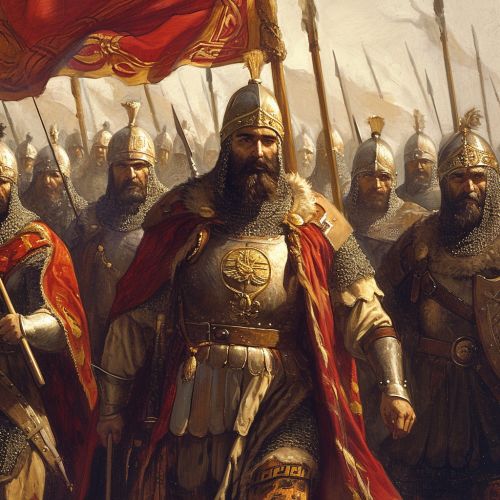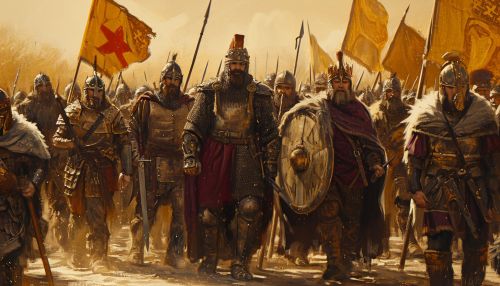Sack of Rome (410)
Background
The Sack of Rome in 410 AD was a significant event in the decline of the Western Roman Empire. It was the first time in almost 800 years that the city of Rome had fallen to an enemy. The Visigoths, led by their king Alaric I, were the invaders who breached the city walls and looted Rome.


Prelude to the Sack
In the years leading up to the sack, the Western Roman Empire had been weakening due to internal strife, economic decline, and pressure from various barbarian groups along its borders. The Visigoths, originally a nomadic tribe from northern Europe, had been pushed into Roman territory by the Huns, another barbarian group. The Romans allowed the Visigoths to settle within their borders as foederati, or allied tribes, but relations between the two groups were tense and often hostile.
Siege and Sack of Rome
In 408, Alaric marched his forces towards Rome, laying siege to the city. The siege lasted for nearly two years, during which time the Romans made several unsuccessful attempts to negotiate a peace with the Visigoths. Finally, in August of 410, the Visigoths breached the city walls and entered Rome. The sack lasted for three days, during which time the Visigoths looted the city, taking gold, silver, and other valuables. Despite the violence and destruction, the Visigoths reportedly showed a degree of restraint, sparing many of the city's inhabitants and leaving several of its buildings intact.
Aftermath and Significance
The Sack of Rome sent shockwaves throughout the Roman world, marking a clear sign of the empire's decline. It also marked a turning point in the relationship between the Romans and the barbarian tribes. The Visigoths, having demonstrated their military prowess, were now a force to be reckoned with. The event also had significant cultural and psychological impacts, as it shattered the Romans' belief in their city's invincibility.
Legacy
The Sack of Rome in 410 is often cited as a key event in the fall of the Western Roman Empire. It is also seen as a symbol of the end of the classical world and the beginning of the Middle Ages. The event has been the subject of numerous historical studies, and it continues to be a topic of interest for scholars of Roman history.
